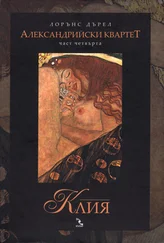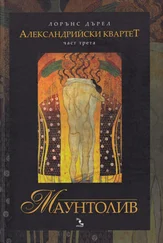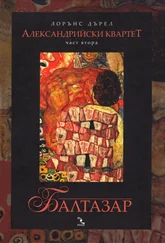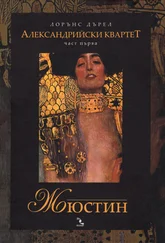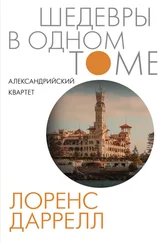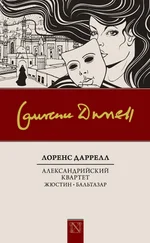Лоренс Даррелл - Prospero's Cell
Здесь есть возможность читать онлайн «Лоренс Даррелл - Prospero's Cell» весь текст электронной книги совершенно бесплатно (целиком полную версию без сокращений). В некоторых случаях можно слушать аудио, скачать через торрент в формате fb2 и присутствует краткое содержание. Жанр: Проза, на английском языке. Описание произведения, (предисловие) а так же отзывы посетителей доступны на портале библиотеки ЛибКат.
- Название:Prospero's Cell
- Автор:
- Жанр:
- Год:неизвестен
- ISBN:нет данных
- Рейтинг книги:4 / 5. Голосов: 2
-
Избранное:Добавить в избранное
- Отзывы:
-
Ваша оценка:
- 80
- 1
- 2
- 3
- 4
- 5
Prospero's Cell: краткое содержание, описание и аннотация
Предлагаем к чтению аннотацию, описание, краткое содержание или предисловие (зависит от того, что написал сам автор книги «Prospero's Cell»). Если вы не нашли необходимую информацию о книге — напишите в комментариях, мы постараемся отыскать её.
Prospero's Cell — читать онлайн бесплатно полную книгу (весь текст) целиком
Ниже представлен текст книги, разбитый по страницам. Система сохранения места последней прочитанной страницы, позволяет с удобством читать онлайн бесплатно книгу «Prospero's Cell», без необходимости каждый раз заново искать на чём Вы остановились. Поставьте закладку, и сможете в любой момент перейти на страницу, на которой закончили чтение.
Интервал:
Закладка:
From this small hillock the prospect stretches away — vineyard, orchard and wood, with its insinuating lines: to the last bluff line of limestone crags beyond which the sea coils and uncoils its silver meshes. From Paleocastrizza the fishermen are setting out with their coracles of straw and wood.
'One sleeps lightly these moonlight nights,' says the Count. We pass an arbour in which, sitting like statues at a deal table, we see a peasant and his wife. Their low voices sound clear and rich upon the breathless night. 'To-morrow we shall ride down to the sea together. I have a horse for you each.'
And so quietly back to the house, and through the great doorway. The candles have burnt down to their guttering ends. The Count distributes them like blessings. We make our way to our several rooms in silence.
Closing the shutters against the staring moon, I pick up a book from the pile lying on top of a cupboard in the corner of a room; it is a commonplace book, full of entries in the fine small hand of the Count. More than half of it is given up to accounts, which are entered in Italian. There is a list of Greek peasant proverbs, a rough drawing of a strip of coastline over the legend 'Dodona's Shrine?', two designs for sailing-boats, and the following quotation:
'Lingering perdition, worse than any death
Can be at once, shall step by step attend
You, and your ways, whose wraths to guard you from,
Which here in this most desolate isle, else falls
Upon your heads, is nothing but heart's sorrow,
And a clear life ensuing.'
28.10.37
Goodisson records the existence of a'fine quarry of marble under the western peak of St. Salvador, of a very fine grain, and well adapted to the use of statuary'. Niko has made us a garden table and seat from this lovely stuff, which is of a deep salmon pink and shot with lines of rust-red.
29.10.37
William Goodisson, A.B., whose 'Historical and Topographical' essay on the island was published in 1822 is sometimes interesting, but often dull and moribund. He charms us most when he is most scientific — and surely no more charming feat than his measurement of the 'Chemical Properties of Sappho's Leap' (in Leukada) could be imagined. 'Chemical Analysis of Sappho's Leap' would make a charming sub-title for the following piece of information: 'External properties: of a clear sugar whiteness, with a few glimmering points in the internal fracture resembling that of fine loafsugar. Sp. Gravity. 2·263.'
2.11.37
Cressida has left her name and her legend to grace the reedfringed edges of the Hyallic Lake; but the force of the stream seems much diminished since 1822, when the speed of the current is said to have turned a mill at 300 metres from the source.
7.11.37
The discovery that Judas Iscariot has a direct connection with Corcyra has provided a great deal more grist to Zarian's mill. Theodore happened to be discussing a first edition of Petrarch which has just been discovered in the uncatalogued jumble of rarer MSS. belonging to the Library with the curator, when the name of Pietro Della Valle was mentioned. The quotation, as it appears in Zarian's essay, is as follows: 'Here also lives a man reputedly of the race of Judas. . I remember a servant of ours who resided at Corfu affirming that some of the Apostate's descendants still existed there, and that a house he inhabited was pointed out.' The date was 1614.
Walking through the verminous and crooked streets of the Hebraica with Theodore we discuss the problem from all its angles. The cobbled alleys are slippery with excrement. The little shops, made for the most part of the flimsiest materials, are worm-eaten and decayed. Yet counters groan with cheap dress materials, mounds of sweets, and everywhere the tap of shoemakers' hammers emphasizes the gnome-like quality of the place. It is natural, of course, that until to-day we have never noticed the name of Theodore's shoemaker: ISCARIOTES. It is painted in lopside capitals on a sagging board. The man himself is a deaf mute with some of the lowering gloomy aspect of Dr. Faustus. He works from a skilful and pedantic set of brown-paper patterns which Theodore has cut out for him. The skin of his face and hands is ingrained with dirt and cobbler's wax. He never smiles. The hair on his face grows high up on the cheekbones so that, unshaven, he seems to be suffering from powder-markings — as if from the discharge of the gun. 'His eyebrows', says Zarian with disappointment, 'do not meet in the middle.' (Popular superstition suggests that this is one of the signs of the Evil Eye.)
Nevertheless the occasion is too good a one to miss, and Zarian draws his notebook from his pocket. Just how to interview a deaf mute, however, is a problem which none of us can solve. Iscariotes can only move his pinkish tongue in his mouth with a faint snakelike composure; he can groan through his nose. And to complete the record of our misfortunes he is illiterate. He appears to have no family, and nobody in the surrounding shops knows anything about him except that he has been working at his little skincovered bench for many years. Voluble and excited, Zarian falls into the Venetian dialect which the Jews in this quarter use among themselves, but without result. Iscariotes shakes his head and attempts a laugh; he does this noiselessly by inflating his throat as a snake its hood — until you can see his pink tongue moving among the yellowed stumps of teeth. It is rather a failure.
Yet later in the alcove of 'The Partridge' Zarian recovers his composure as he proceeds to give us an account of the Jewish Colony of Corcyra.
When Benjamin of Tudela visited the island in 1160 he found only one Jew there — a dyer.
In 1571 Venice expelled the Jews from her dominions; yet by some chance the Jews of Corcyra were left undisturbed. In 1760 they were a colony 1, 171 strong, while when the first French warships arrived to claim the island fortress for France some 2,000 were recorded in the census figures. By 1860 the colony numbered some 6,000 souls according to British computations.
Yet where does the ceremony of casting out Judas originate? At eleven o'clock on Good Friday every year, the unwary visitor is suddenly terrified out of his wits by the discharge of masses of crockery into the streets, pots, pans, and cauldrons, while the air is made hideous by the banging of pistols. This is supposed to be a ceremony for the casting out of Judas; and the banging and yelling continue (with pauses for refreshment) throughout the day.
The Hebraica still guards its isolation and its language, and its members play little or no part in the life of the island. Yet the age of persecutions is by no means over; Zarian has observed how during Easter Week you will never see a Jew outside the confines of their settlement. But the finest wedding embroideries come from the Hebraica, and the greatest range of pottery and the tinsmith's wares are to be seen there.
'On the 13th February 1386 Corfu was once more a Venetian possession. . On the 20th of May the people of Corfu, at a public meeting to appoint five ambassadors to submit to the Venetian senate, for confirmation of the treaty already made, had included a Jew in the Embassy named David Somos. . '
Howell in his Travells mentions the Venetian dialect which they speak even to-day.
10.11.37
'To Napoleon,' says Zarian, who rejoices in great names, 'Corfu was the keystone to an Empire in the East. If he had been exiled here instead of in St. Helena there is no knowing but that his proud stony heart might have been softened.'
In his diary the French conqueror wrote: ' Venice must fall to those to whom we give the Italian continent, but meanwhile we will take its vessels, strip its arsenal, destroy its bank, and keep Corfu and Ancona. . ' 'With Malta and Corfu we should soon be masters of the Mediterranean.' And later, in a letter to Talleyrand he added: 'I think that henceforth the chief maxim of the French Republic should be never to give up Corfu, Zante, etc.'
Читать дальшеИнтервал:
Закладка:
Похожие книги на «Prospero's Cell»
Представляем Вашему вниманию похожие книги на «Prospero's Cell» списком для выбора. Мы отобрали схожую по названию и смыслу литературу в надежде предоставить читателям больше вариантов отыскать новые, интересные, ещё непрочитанные произведения.
Обсуждение, отзывы о книге «Prospero's Cell» и просто собственные мнения читателей. Оставьте ваши комментарии, напишите, что Вы думаете о произведении, его смысле или главных героях. Укажите что конкретно понравилось, а что нет, и почему Вы так считаете.


